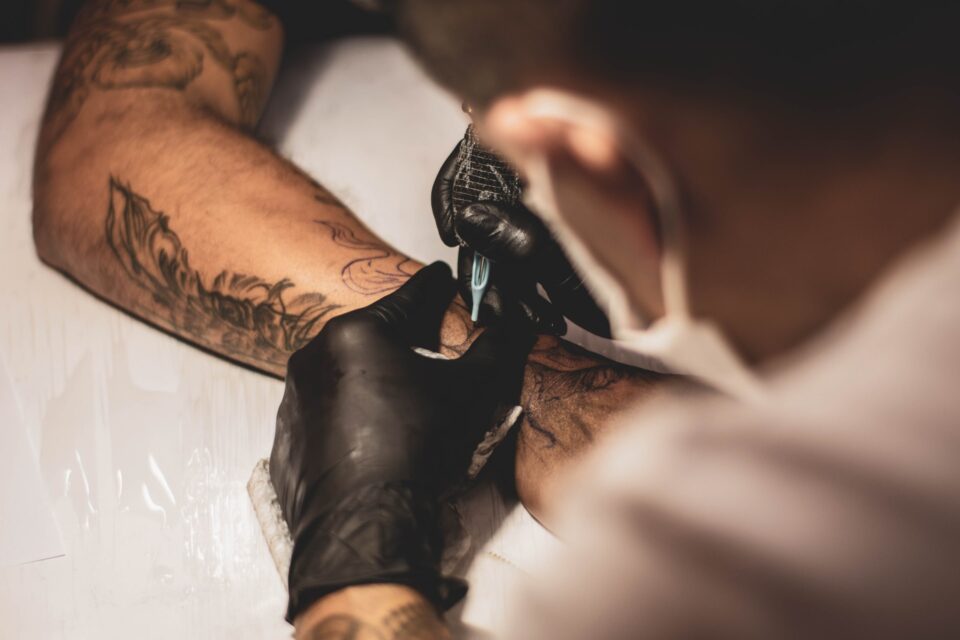Getting a tattoo can be utterly exhilarating; it can mark important moments or mental shifts in your life, or simply capture your feeling and interests as they are right now. Whether you’ve spent years with the perfect design sitting in your notebook waiting for the perfect moment to splurge and get the tattoo or have spontaneously decided just recently what you want to have tattooed and where, there are several things you might want to keep in mind if you’re looking to get a tattoo.
What Is A Tattoo?
It’s a good idea to understand what a tattoo is before you commit. Just because you’ve seen them around on people’s skin doesn’t mean you automatically know what a tattoo physically is. Foremost, tattoos are permanent body art. The ink is embedded into the dermis layer of your skin. This is done by repeatedly puncturing with an ink-filled needle to deposit color in the second layer of your skin. If you’re considering getting a tattoo, it’s important to also be aware of the options available for removing it, such as microblading laser removal.
It Will Hurt
This means it will hurt getting a tattoo. Given the importance of avoiding blood-thinning products beforehand (more on that below), many pain management options aren’t a good idea. Take some time to do a little research on the best cream to numb tattoo pain if you’re really concerned. Just be sure to run your choice by your tattoo artist.
It Will Take Time
It will also take a bit of time (sometimes hours or multiple sessions). Given the length of time, you will be employing an artist, tattoos are often expensive.
Tattoo Removal Process
Given that tattoo removal is something that’s possible, some people consider tattoos impermanent. This is not a good way to look at it. Tattoo removal is possible, but it is even more painful and more expensive (up to thousands of dollars for a full sleeve).
There Are Legal Considerations
Given the permanent nature of the body art, it is worth noting that in most countries, there is a legal age you need to be to get a tattoo. Some countries allow people beneath this age to get a tattoo with the presence of their legal guardian, while others do not. Be sure to look up the laws in your area to avoid any trouble. In some countries, like South Korea, the act of tattooing someone is almost entirely illegal. People can spend up to two years in jail for tattooing other people!
It Won’t Look Perfect Right Away
Given that puncturing the skin is part of the process, getting a tattoo involves having a wound on your skin. For many people, the wound on the top layer of skin needs to heal over before the tattoo can be fully seen and appreciated.
Think About Size And Position
The larger a tattoo, the longer it’s going to take (which means the more it’s going to hurt and the more expensive it’s going to be). This being said, one of the biggest influences on the degree of pain is the placement of the tattoo on your body. Places where the bone is close to the surface of your skin hurt far more. This includes the rib cage, elbows, and knees. As well, sensitive areas like the groin, armpit, and nipple area can also hurt quite a bit. If you’re unsure about the location you’ve chosen, ask the tattoo artist you’ve chosen (you took a while to pick someone very talented with a good reputation, right?) their opinion. Someone who’s tattooed hundreds of people will be able to tell you which placements have bothered their previous clients the most.
Caring For Yourself Before And After
Your tattoo artist will give you a few instructions on how to best prepare yourself. You probably want to avoid using any hygiene products that dry your skin out ahead of time, and also will want to avoid alcohol or any blood-thinning medication. If you cannot avoid medications, be open with your tattoo artist about it so that any additional steps that need to be taken can be undergone.
Afterward, you’ll also have to take good care of the wound and skin by following all tattoo aftercare instructions given by your artist. There’s the risk of infection if the wound is not kept clean, and it’s quite common for a dry, flaky, itchy stage of healing to occur. You’ll have to be really careful about what products you put on the area as it heals. This means using gentle soaps approved by your tattoo artist and taking the time to research a good moisturizer that doesn’t irritate. As a general rule, you’re going to want to avoid fragranced products, as these can cause problems for healing skin.
The above information should help you mentally prepare yourself for the act of getting a tattoo. If you’re having feelings of doubt, it’s okay to pause the process and pick it up later on when you’re feeling more certain.

